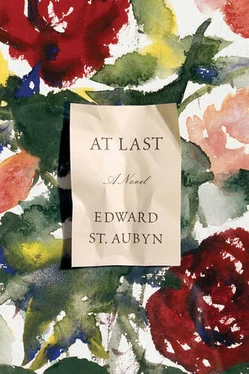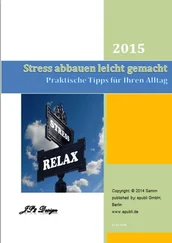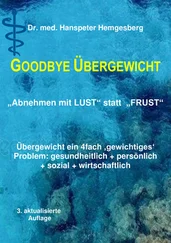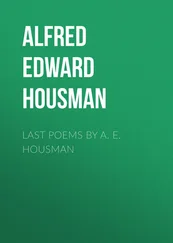As he turned to leave, Henry reached out and touched Patrick’s shoulder.
‘I’m sorry for your loss,’ he said, with a formality that was by then infused with emotion. He nodded to Nancy and Nicholas.
‘Excuse me,’ said Patrick, looking back at the entrance of the crematorium, ‘I have to say hello to Johnny Hall.’
‘Who’s he?’ asked Nancy, sensing obscurity.
‘You may well ask,’ scowled Nicholas. ‘He wouldn’t be anybody at all, if he wasn’t my daughter’s psychoanalyst. As it is, he’s a fiend.’
Patrick walked away from his mother’s coffin, aware that unless he rushed back hysterically, he had stood beside her for the last time. He had seen the cold damp contents of the coffin the night before, when he paid a visit to Bunyon’s funeral parlour. A friendly, blue-suited woman with short white hair had greeted him at the door.
‘Hello, love, I heard a taxi and I thought it was you.’
She guided him downstairs. Pink and brown diamond carpet like the bar of a country house hotel. Discreet advertisements for special services. A framed photograph of a woman kneeling by a black box from which a dove was only too pleased to be set free. Bolting upwards in a blur of white wings. Did it return to the Bunyon’s dovecote and get recycled? Oh, no, not the black box again. ‘We can release a dove for you on the day of your funeral’. Gothic script seemed to warp every letter that passed through the door of the funeral parlour, as if death were a German village. There were stained-glass windows, electrically lit, on the stairs down to the basement.
‘I’ll leave you with her. If there’s anything you need, don’t hesitate. I’ll be upstairs.’
‘Thank you,’ said Patrick, waiting for her to turn the corner before stepping into the Willow Chapel.
He closed the door behind him and glanced hurriedly into the coffin, as though his mother had told him it was rude to stare. Whatever he was looking at, it was not the ‘her’ he had been promised with solemn cosiness a few minutes before. The absence of life in that familiar body, the rigid and rectified features of the face he had known before he even knew his own, made all the difference. Here was a transitional object for the far end of life. Instead of the soft toy or raggie that a child uses to cope with its mother’s absence, he was being offered a corpse, its scrawny fingers clutching an artificial white rose whose stiff silk petals were twisted into position over an unbeating heart. It had the sarcasm of a relic, as well as the prestige of a metonym. It stood for his mother and for her absence with equal authority. In either case, it was her final appearance before she retired into other people’s memory.
He had better take another look, a longer look, a less theoretical look, but how could he concentrate in this disconcerting basement? The Willow Chapel turned out to be under a busy pavement, pierced by the declamatory brightness of mobile-phone talk and tattooed by clicking heels. A rumbling taxi emerged from the general traffic and splashed a puddle onto the paving stones above the far corner of the ceiling. He was reminded of the Tennyson poem he hadn’t thought of for decades, ‘Dead, long dead, / Long dead! / And my heart is a handful of dust, / And the wheels go over my head, / And my bones are shaken with pain, / For in a shallow grave they are thrust, / Only a yard beneath the street, / And the hoofs of the horses beat, beat, / The hoofs of the horses beat, / Beat into my scalp and my brain, / With never an end to the stream of passing feet.’ He could see why Bunyon’s had chosen to call this room the Willow Chapel rather than the Coal Cellar or the Shallow Grave. ‘Hello, love, your Mum’s in the Coal Cellar,’ muttered Patrick. ‘We could release a dove in the Shallow Grave, but it would have no chance whatever of escape.’ He sat down and rocked his torso over his folded arms. His entrails were in torment, as they had been since hearing about his mother’s death three days ago. No need for ten years of psychoanalysis to work out that he felt ‘gutted’. He was doing what he always did under pressure, observing everything, chattering to himself in different voices, circling the unacceptable feelings, in this case conveniently embedded in his mother’s coffin.
She had left the world with screeching slowness, sliding inch by inch into oblivion. At first he could not help enjoying the comparative quiet of her presence, but then he noticed that he was clinging to the urban noises outside in order not to be drawn into the deep pit of silence at the centre of the room. He must take a closer look, but first he really had to turn down the lights that were glaring through chrome grids in the low polystyrene ceiling. They bleached the glow of the four stout candles impaled on brass stands at the corners of the coffin. He dimmed the spotlights and restored some of the ecclesiastical pomposity to the candles. There was one more thing he had to check. A pink velvet curtain partitioned the room; he had to know what was behind it before he could pay attention to his mother. It turned out to hide a storage area packed with equipment: a grey metal trolley with sensible wheels, some no-nonsense rubber tubes and a huge gold crucifix. Everything needed to embalm a Christian. Eleanor had expected to meet Jesus at the end of a tunnel after she died. The poor man was a slave to his fans, waiting to show crowds of eager dead the neon countryside that lay beyond the rebirth canal of earthly annihilation. It must be hard to be chosen as optimism’s master cliché, the Light at the End of the Tunnel, ruling over a glittering army of half-full glasses and silver-lined clouds.
Patrick let the curtain drop reluctantly, acknowledging that he had run out of distractions. He edged towards the coffin, like a man approaching a cliff. At least he knew that this coffin contained his mother’s corpse. Twenty years ago, when he had been to see his father’s remains in New York, he was shown into the wrong room. ‘In loving memory of Hermann Newton’. He had done everything he could to opt out of that bereavement process, but he was not going to evade this one. A cool dry part of his mind was trying to bring his emotions under its aphoristic sway, but the stabbing pain in his guts undermined its ambitions, and confused his defences.
As he stared into the coffin, he felt the encroachment of an agitated animal sadness. He wanted to linger incredulously by the body, still giving it some of the attention it had commanded in life: a shake, a touch, a word, an enquiring gaze. He reached out and put his hand on her chest and felt the shock of its thinness. He leant over and kissed her on the forehead and felt the shock of its coldness. These sharp sensations lowered his defences further, and he was overwhelmed by an expanding rush of sympathy for the ruined human being in front of him. During its fleeting life, this vast sense of tenderness reduced his mother’s personality to a detail, and his relationship with her to a detail within a detail.
He sat down again and leant forward over his crossed legs and folded arms to give himself some faint relief from the pain in his stomach. And then he suddenly made a connection. Of course, how strange — how determined. Aged seven, going on his first trip alone abroad with his mother, a few months after his parents’ divorce. His first flash of Italy: the white number plates, the blue bay, the ochre churches. They were staying at the Excelsior in Naples, on a waterfront buzzing with waspish motorcycles and humming with crowded trams. From the balcony of their magnificent room, his mother pointed to the street urchins crouched on the roofs, or clinging to the backs of the trams. Patrick, who thought they were in Naples on holiday, was alarmed to hear that Eleanor had come there to save these poor children. There was a marvellous man, a priest called Father Tortelli, who never tired of picking up lost Neapolitan boys and giving them shelter in the refuge that Eleanor had been bankrolling from London. She was now going to see it for the first time. Wasn’t it exciting? Wasn’t it a good thing to be doing? She showed Patrick a photograph of Father Tortelli: a small, tough, fifty-year-old man in a black shirt who looked as if he was no stranger to the boxing ring. His bearish arms were locked around the fragile, sharp-boned shoulders of two sun-tanned boys in white vests. Father Tortelli was protecting them from the streets, but who was protecting them from Father Tortelli? Not Eleanor. She was providing him with the means to fill his refuge with ever-growing numbers of orphans and runaways. After lunch that day, Patrick had an attack of violent gastro-enteritis, and instead of leaving him in luxurious neglect while she went to look after the other children, his mother was made to stay with him and hold his hand while he screamed with pain in the green marble bathroom.
Читать дальше












